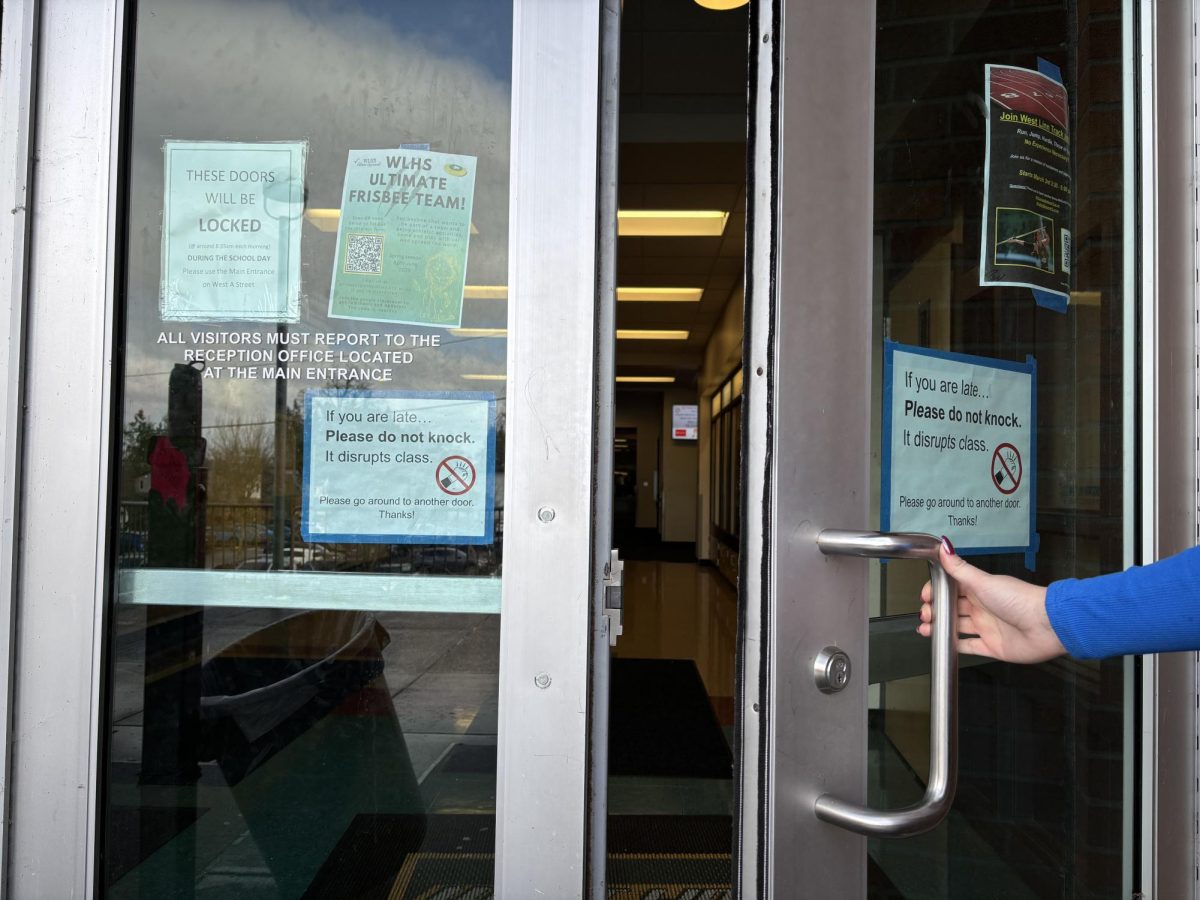Tina Kotek, the governor of Oregon, recently dubbed September of 2024 “Attendance Awareness Month” in a recent proclamation due to the massive amount of skipped classes in recent years.
According to Lake Oswego Review, pre-COVID-19, roughly 80% of Oregon students were considered regular school attendees or people who went to school 90% of the time. In 2023, that average had fallen all the way down to 68%.
“Attendance is the key predictor of how well students will do in school,” said Dawn Ahlgren, 12th Grade Administrator. “Students that we find miss more than that, they fail classes. They’re more at risk for dropping out, they’re more at risk of having lower grades.”
Because of this, the state has decided on a policy to combat “chronic absenteeism,” or when students fall below 90% full day attendance.
The new statewide policy to offset these numbers is the 90% attendance rule. Stating that students have to be at school for the entire day at least 90% of the time, whether the absence is excused or unexcused.
But what happens if you fall below the 90% standard? The West Linn-Wilsonville school district has decided to remove certain privileges from students, such as upperclassmen losing their parking space, ability to participate in extracurricular activities such as sports, or the ability to bring an outside guest to a school dance.
“If your coach was okay if you only showed up to 80% of the practices, would your coach want you to play? If you only showed up to 80% of the games, would your coach want you to play? They would not,” Alghren said.
This new law was met with an uproar at the junior assembly during a Q&A portion, with the juniors having many concerns, and ones they voiced, asking things such as, “What if my Grandma died?”
It may sound comical, but it has a good point, what would happen if you had a death in the family? What if you had a serious health issue like COVID-19 or a concussion? What if you get called out of class a lot for something like sports? Would they count?
“Everyday, I get a list that pops up on the screen of students who have fallen below that 90%,” explains Ahlgren. “I call that student in and I say, ‘Hey, I see that you’re below 90%’.”
They will be taking the absences on a case-by-case basis. Showing them your reasoning for missing classes, if considered valid, like a death in the family, sports, or health issue (including mental health), these punishments could be absolved from your record. Showing that your attendance may have been poor at the beginning of the year, if it has picked up then your record could just as well be absolved as well.
“That is why I have those conversations, because [the list] doesn’t tell a story,” Ahlgren said.
In other schools and states, the punishment for missing school to the point of being “chronically absent” is far worse. Many other schools will fine the parents for having their children out of school or even take them to court.
While the 90% attendance rule may be a rough adjustment, it can be far worse in many other places, and will hopefully help with the problem of “chronic absenteeism.”


![Reaching out. Christopher Lesh, student at Central Catholic High School, serves ice cream during the event on March 2, 2025, at the Portland waterfront. Central Catholic was just one of the schools that sent student volunteers out to cook, prepare, dish, and serve food. Interact club’s co-president Rachel Gerber, junior, plated the food during the event. “I like how direct the contact is,” Gerber said. “You’re there [and] you’re just doing something good. It’s simple, it’s easy, you can feel good about it.”](https://wlhsnow.com/wp-content/uploads/2025/03/interact-1-edited-1200x744.jpg)





























































![At the bottom of the third inning, the Lions are still scoreless. Rowe stands at home plate, preparing to bat, while Vandenbrink stands off to the side as the next batter up. Despite having the bases loaded, the team was unable to score any runs. “It’s just the beginning of the season. We’re just going to be playing out best by June, [and] that’s where champions are,” Rowe said.](https://wlhsnow.com/wp-content/uploads/2024/03/IMG_3077-1200x900.jpg)



















































